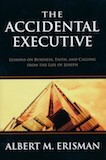When Dreamer Becomes Employee
My first day was a rush of paperwork, welcome signs, and smiles. "We’re so glad that you are here!" one teacher exclaimed, lipstick smeared crookedly across her lips.
I smiled back and shook her hand. I was her new boss; this was my new job, serving as the academic director of a small ESL school. I had been married for less than two weeks, and we had just finished unloading the Uhaul. Everything was shiny, promising, and open.
I should have paid more attention to the quake in my gut when I shook that teacher’s hand. I should have listened between the lines when my boss, whose lipstick was straight and whose pep was formidable, looked blankly past me after I asked about the teachers’ strengths. "I’m looking to see what you will do to inspire the teachers."
In college, I learned that vocation encompassed my whole life; that everything I did was for the glory of God. Regardless of the work I chose, my actions would be small, vital movements of redemption in God’s kingdom. This was a welcome change for me after a church background that elevated evangelism and apologetics as "the Lord’s work." To hear that my love of books and language had meaning, too, gave me energy and hope.
And I was excited to see what unseen gifts might emerge in my new job.
Impossible
What I saw were lists and lists of weaknesses. Lists that I compiled on my lunch hour, lists that my boss presented to me, her suit jackets crisply brushing my desk as she marched into my office, the door slamming behind her.
I assumed this was necessary growth, that I was being pruned, so to speak, of characteristics that had gone unchecked: my rushed speed in preparing documents, my stubborn preference for independence. I imagined the scene in The Mission where Robert De Niro’s character climbs up a mountainside, his bare feet cut against the stones, a physical demonstration of his spiritual purification.
I tried to welcome the criticism. But as the months piled on, the lists of weaknesses grew. The door slammed more often. And I was faced with the reality of a job that, for some reason, I could never do right. "I could run this whole school by myself, Allison," my boss said to me one day, ripping up a report I had printed on the wrong color of paper. "And it’s not my fault that you don’t ask for help."
Each day felt like a guessing game: What teacher would I need to write up? What policy had I forgotten while preparing an important student file? What would my boss say that I had failed to do next?
Up to this point, my work had always been met with an equal measure of challenge and affirmation. Not here. What was I to do with work that not only humiliated me, but kept me awake at night with anxiety? Was it my boss, or was it me? Was this a job I simply couldn’t handle? If so, what was I supposed to learn from it, if anything?
Impossible...for me
In the teachings of the desert fathers, there are two strands of spiritual edification: the via active, or "way of affirmation," and the via negativa, or the "way of negation." In the via negativa, the pilgrim does not simply berate himself, but recognizes that, in order to increase, he must decrease. In order to fully meet God, he must embrace both his frailty and his inability; he must carry the cross of self and also die upon it.
Perhaps, in some way, this is what I experienced in this job—a kind of spiritual formation that had no foreseeable agenda, no lesson that I could immediately grasp.
And perhaps, in another way, it prepared me for the day that my boss sat down and explained that the school was closing. That she was leaving, and that I would be in charge. Would I stay on board to help pack the boxes, comfort the teachers, and make the school’s final days smooth for everyone?
At one point, before her departure and after a particularly restless night, I brought an icon of Christ washing the disciples’ feet and hung it in my office. I needed illumination; I needed a reminder that, even if the difficulties seemed endless, I was still making a difference. There were feet to be washed in this place, after all.
When she asked me if I would stay, things suddenly came into focus. And for the next two months, as I wrote recommendation letters and listened to teachers cry in my office, I saw Christ at the corner of my eye, hands cupped around Peter’s foot.
On the school’s last day, in the rush of hugs and goodbyes, I was glad that I had been there, my presence small, the kingdom still wide open.
Image by Niklas Morgerg. Used with permission via Flickr. Post written by Allison Backous Troy.





